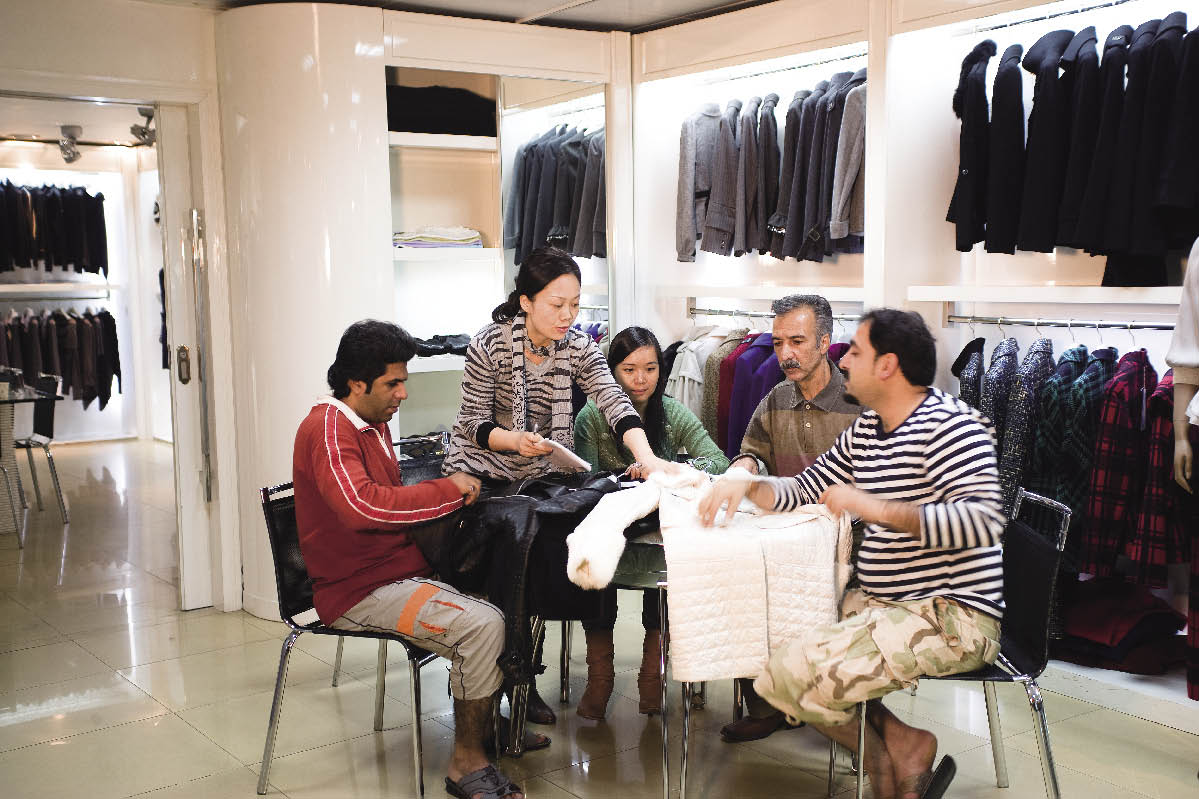|
 |
| Vendors discuss business with iverseas customers |
China Today: How does New Mainland build its own brand while selling goods for other brands?
Mr. Zhang: We divide our management to three stages: managing resources, managing brands and managing ideas. In the initial period when the market was being set up, we decided to build our market into a professional woolen textiles wholesale market after careful analysis of the market. That was to manage the woolen textiles resources. Then we started to build brands for our vendors. In the process of attracting vendors, we sent three teams to inspect many manufacturing bases, and introduced brands with development potential. Then we "nourished" the brands as a loving mother would her children. For example, we held free lectures on brand building for our vendors, and invited the media to help promote the brands. Also we jointly organized activities with the Guangzhou Clothing Trade Association to choose the New Mainland Top Ten Brands.
China Today: If a brand matures through the New Mainland Market it doesn't need the market any more. How does this affect New Mainland?
Mr. Zhang: Once an enterprise matures, it will have its own future development and maybe it won't need us as its "incubator" any more. But we don't consider this a bad thing. A brand becoming successful in the New Mainland Market is the best result for us. Those successful brands serve as models for our future work. In fact, it is a win-win result, as only by continuously cultivating new brands can our New Mainland Garment Wholesale Market keep thriving in the long run.
Zhang Zhanxin, born in 1954, pen name Xin Xing, native of Hengyang City, Hunan Province, has education experience in the People's Liberation Army Political Academy in Nanjing, postgraduate economics at the Guangdong Academy of Social Sciences, and the Executive MBA Program at Sun Yat-sen University. Since 1976, he has published essays and art reviews in dozens of newspapers in China and abroad. Now he is a member of both the China Writers' Association and the China Prose Society. He has published many books, such as Wars in Battle and in Business, Business Knacks, China's Calligraphy and Painting Market, and Invaluable Calligraphy and Painting Market. |
